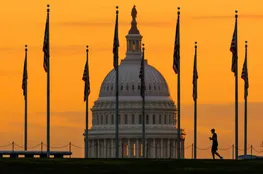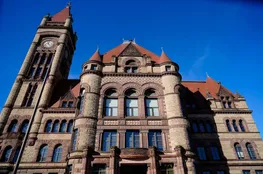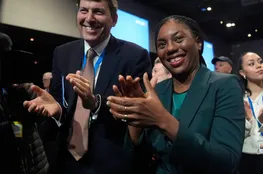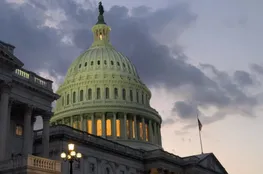The candidates for New Hampshire's 2nd Congressional District faced off in a heated debate on Thursday, focusing on critical topics such as economic issues, immigration, and foreign policy. This debate comes as voters prepare to head to the polls to choose a successor for outgoing U.S. Rep. Annie Kuster. The race pits Democrat Maggie Goodlander against Republican Lily Tang Williams, each bringing distinct backgrounds and perspectives to the table.
Maggie Goodlander brings extensive experience in the federal government, having served as a foreign policy adviser in the U.S. Senate, clerked for the Supreme Court, and worked in a senior advisory position in President Joe Biden's White House. In addition to her political career, she has military experience as an intelligence officer in the Navy Reserve. Goodlander, born in Nashua, is also an alumnus of Yale, where she completed both her college education and law degree.
Lily Tang Williams' journey began in Maoist China where she worked as an attorney before immigrating to the United States to further her studies in Texas. Williams transitioned to Colorado, where she ran for the U.S. Senate as a Libertarian candidate, and has since moved to New Hampshire, marking her second campaign to represent the 2nd District.
During the debate, a significant portion of the discussion centered on how to alleviate economic pressures facing New Hampshire residents amidst a period marked by high inflation. Goodlander highlighted that she would leverage her political power to address cost issues despite admitting there is no quick fix. On the other hand, Tang Williams attributed inflation to excessive government spending post-COVID-19 and advocated for reduction in spending as a primary strategy to curb costs. She pointed out that Democrats, including her opponent, tend to point fingers at corporations for inflation, whereas she believes the root cause lies in Washington D.C.'s capability to print money unchecked.
In contrast, Goodlander argued for the utilization of antitrust and consumer protection laws to combat corporate exploitation, suggesting bipartisan support for reforms could mitigate economic struggles for Granite Staters. When the topic of child care costs arose, Tang Williams reiterated her stance that government-induced problems lead to inflated solutions, fostering a cycle of increased spending and inflation. Another vital point of contention in the debate was abortion, a prominent issue in this election cycle.
Goodlander reflected on her own miscarriage experience, advocating for a woman's autonomy over her reproductive health decisions, opposing governmental involvement. Conversely, Tang Williams backed the Supreme Court's Dobbs decision, which delegates the abortion issue to state jurisdiction, stating she would not support a federal ban and respects current state laws allowing safe, legal abortion up to six months.
The debate highlighted the divergent viewpoints of the candidates, offering voters clear contrasts on how they would handle pivotal issues like economic recovery and reproductive rights. As election day approaches, these discussions underscore the importance of informed decision-making for residents in New Hampshire's 2nd Congressional District. This ongoing story will be updated as new developments occur.
























